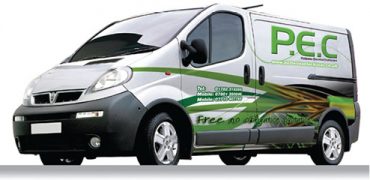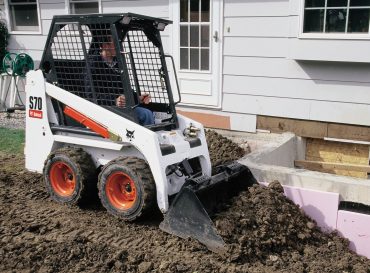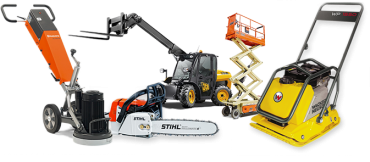
John Bleasby
Rent, lease or buy? Ask yourself the right questions first!
Canadian ContractorAdding vehicles or equipment means carefully considering the options
With interest and lease rates at or near all-time lows, many contractors might ask themselves: Which option is the best when adding to my vehicle fleet or inventory of building equipment?
To simplify a big topic, let’s divide it into sections

Most vehicles decline in value faster than you can right them off
Vehicles: A fast –depreciating asset that either sucks up capital or eats into your LOC
In terms of standard trucks like pickups and vans, the case for leasing is very compelling. Considering that a vehicle starts losing value the moment it leaves the dealer’s lot, ask yourself this: Why invest valuable company capital in a fast depreciating asset? Why use your LOC limit to borrow from a bank at 5% to 8% to purchase an asset whose resale value declines faster than you can depreciate it from your company’s income? (Lease payments are normally 100% deductible from company income.)
Lease finance rates offered by the manufacturers are currently well below bank rates. In addition, whereas buying outright means borrowing or ‘investing’ the full capital cost, a lease typically involves financing only about 50% of the sticker price at subsidised rates, with the balance payable at your option at the end of the lease. Therefore, monthly payments are lower. You can even negotiate a zero down payment at the outset.
On top of that, at the end of the lease, you can buy the vehicle if you feel it still has a decent useful life, or turn it in and get a shiny new one and start again. In the meantime, over the 3 or 4 year lease, you are largely under the manufacturers’ warranty, giving you some idea of your total costs over the period.

How often you use machinery helps determine how soon it pays for itself
Heavy equipment: It may be ‘cool’ to own, but other factors need consideration
If you doing the same type of heavy work, week-in and week-out, and need Bobcats, heavy trucks, dozers, or backhoes etc., buying or leasing may make sense. But first, ask yourself these questions:
Where will I store the equipment? Do I have a shop or covered storage facility?
How will I maintain it? Am I good enough with engines and hydraulics, or can I find a good maintenance programme through the dealer or manufacturer?
How long (or how many jobs), will it take to for the equipment pay for itself and start making me money?
Owing stuff may seem cool, but if you’re using your hard-earned capital or borrowing, you need to be sure you are investing wisely. Leasing can be a good alternative; in fact it’s fast becoming the construction industry’s most popular choice. Buying used? You better know how to ‘fix ‘dat thang’, or know someone who can: The initial sticker price might be low, but you’re on your own once the cash changes hands.
From a corporate accounting standpoint, have your accountant determine the allowable rate of depreciation if are considering a purchase. Like vehicles, the re-sale value may shrink faster than you can depreciate. Since leases are usually full tax deductible, like maintenance, you might also be saving by simplifying your book keeping with one line entries.

You can rent almost anything to do with construction. Will that give you more flexibility?
The rental equipment universe: expanding at the speed of light
The construction equipment rental business is expanding all across the globe. Of course, most contractors and/or their crews own their own hand tools and power equipment. But what if you’re a contractor needing occasional compressors, high volume de-humidifiers, specialty cutting saws, light towers, even smaller earth and material moving equipment? It may be advantageous to rent-as-required rather than to own outright or lease and have the equipment sitting around. Again, the questions are: How often do I require this equipment? Can I maintain it? Where will I store it? How many jobs until it makes money? Do my job cost calculations include a input factor for equipment owned versus equipment rented? Is it simpler to deduct rental costs as they occur versus calculating depreciation over years?
Renting, or even Rent Purchase Options (RPO’s), can give small and medium sized contractors the flexibility to get what they need, but only when they need it, with no concerns regarding maintenance, storage and use of capital. Furthermore, it allows contractor to ‘size themselves’ to suit the project, using the latest equipment. Just be sure your local rental equipment supplier has sufficient inventory to deliver what you need when you need it!
Share your experiences with us!
Do you plan to substitute older owned equipment with leased or rented replacements?
Had any availability problems when renting?
follow John on Twitter 
@john_bleasby

Leave a Reply